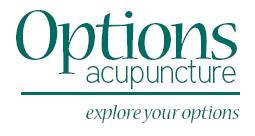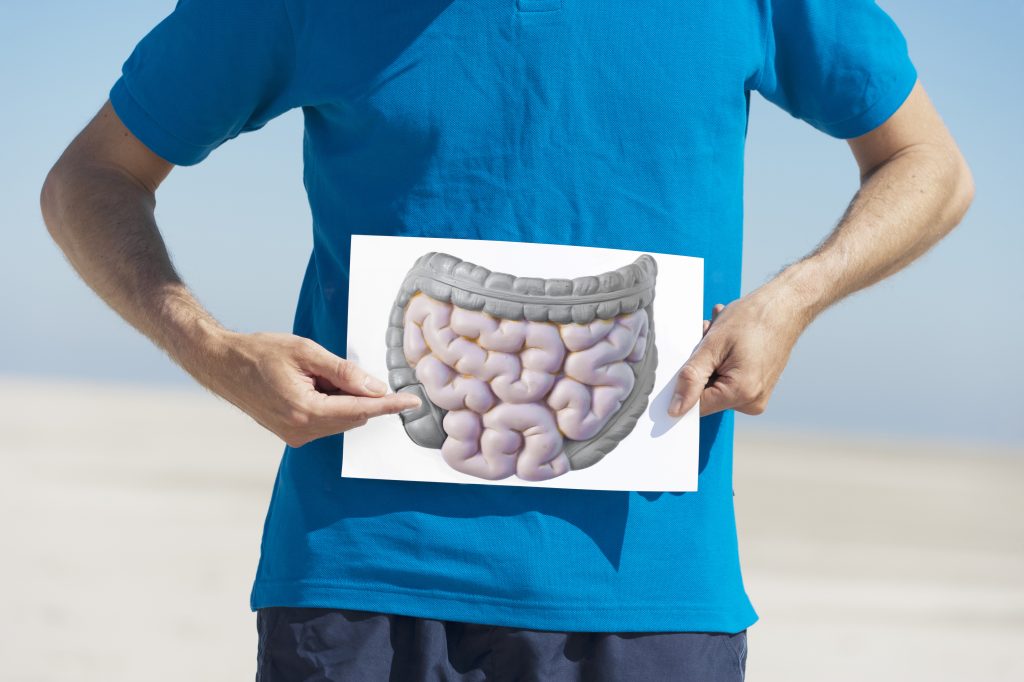-
 Options Acupuncture5345 Wyoming Blvd NE #103B
Options Acupuncture5345 Wyoming Blvd NE #103B
Albuquerque, New Mexico 87109505-918-7596
Wellness
The Immune System in Traditional Chinese Medicine

A study published by the National Institutes of Health evaluated the efficacy of acupuncture for stimulating or regulating the immune system by comparing the results from several studies that each used different methods of acupuncture. Through the use of electroacupuncture, moxibustion, herbs and acupuncture, the studies concluded Traditional Chinese Medicine (TCM) can be helpful for the immune system. The combined studies demonstrated that moxibustion helped repair the gut mucosa of rats suffering from ulcerative colitis, electroacupuncture can increase the number of T cells in the body and that general acupuncture can decrease inflammation, which plays a vital role in the immune system.
Your immune system is what keeps you healthy and helps you ward off pathogens like the flu or a cold. Most of us don’t spend a lot of time worrying about our immune system until we’re sick. Then we reach for the over-the-counter medications to help relieve our symptoms. By looking to TCM instead, we can be proactive about supporting our immune systems in a safe and natural way.
According to TCM, the body is protected by something known as the Wei Qi (pronounced “way chee”). The Wei Qi, or defensive Qi, is comparable to the immune system in conventional medicine. It acts as the first line of defense when the body is under attack from external pathogens. If the Wei Qi is strong, then the body is capable of fighting off bacteria and viruses. Extreme stress, lack of sleep and a poor diet can all play into how strong the body’s Wei Qi is and how well it performs.
There are multiple tools in the TCM practitioner’s tool box that can assist in keeping the immune system strong and healthy, including acupuncture, moxibustion, electroacupuncture, herbs, cupping and nutrition.
Each of these tools has a similar effect on the body. TCM can regulate immune function, while also treating the underlying causes of the disease. This is done by reducing the symptoms, speeding up the healing, decreasing excess phlegm, decreasing inflammation and boosting the immune-mediated cells in the body that help ward off invasions.
Studies show regular acupuncture treatments can actually increase the number of T cells the body produces. T cells destroy harmful bacteria and viruses in the body. Acupuncture needles stimulate the brain into thinking an invader (virus or bacteria) has entered the body. The brain signals the increased release of T cells and white blood cells to fight off the intruder. The amazing part is the increased cellular response lasts for several days after the acupuncture treatment.
RECEIVING REGULAR ACUPUNCTURE TREATMENTS CAN ACTUALLY PREVENT THE BODY FROM GETTING SICK.
College Stress and Acupuncture

Arizona State University conducted a study on the effects of stress on college students and staff in a “large urban college population.” The study was a two-group, randomized controlled trial where the participants underwent either sham acupuncture or verum acupuncture. The participants included college students, faculty and staff at a large public university and the study was approved by the university’s institutional review board with the consent of each participant.
Prior to the study beginning, each participant answered questions in the Cohen’s Global Measure of Perceived Stress questionnaire at 5 different parts of the study. The intention behind this step was to measure how stress changed or did not change for each participant throughout the course of the treatment.
The acupuncture points that were used within the study were as follows: GV 20 / PC 6 / HT 7 / Yingtang / Four Gates / CV 17 / CV 6 / ST 36.
These points were given to the treatment group which were set to undergo verum acupuncture. Each group reported to the acupuncture clinic once a week for a 30 minute session.
The second group (considered the control group) received sham acupuncture in 3 points that are not known to have any effect on stress. These points on the body that are located between meridians and were inserted unilaterally and without stimulation or manipulation to ensure that de qi would not occur.
After the study was completed, each participant was questioned on the levels of stress that they each endured after 6, 12, 18 and 24 weeks post-treatment. Between the first treatment and the 24th week post-treatment, the verum acupuncture group reported a 45.8% improvement in the perception of stress. The sham acupuncture group reportedly showed a 40.3% difference in stress levels between the start of the study and post-treatment. However, at 3 months post-treatment, the sham acupuncture group had shown a decrease in their stress-scores.
To reduce the amount of error in the study, they “treated every participant with the same point combination, no matter what their underlying energetics may have suggested.” This was to keep the acupuncture points as consistent as possible in order to obtain the most accurate results possible.
The study did determined that stress was reduced through the use of acupuncture on the participants within the study but that a larger sample size would aid in obtaining more statistically consistent results.
This study appears promising for determining the effects of reducing stress on university-goers through the treatment of acupuncture. However, further study and testing would be necessary for more conclusive results.



